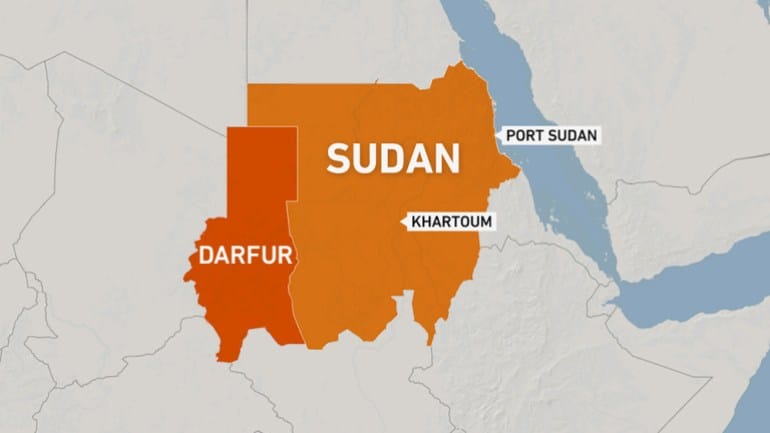The Sudanese conflict took a dangerous turn on Thursday after drone strikes allegedly carried out by the paramilitary Rapid Support Forces (RSF) set ablaze fuel depots in the southern city of Kosti, threatening vital energy supplies in White Nile State.
According to a military source who spoke under condition of anonymity, “three drones targeted the fuel storage facilities that supply the state, causing major fires and disrupting fuel distribution.” The RSF has not claimed responsibility, but Sudanese authorities blame the group for the coordinated attack.
Meanwhile, in Port Sudan, the country’s critical humanitarian and governmental hub, aerial attacks continued into a fifth consecutive night. Sudanese air defense units reported intercepting multiple drones during nighttime strikes, which have now become a daily threat in the Red Sea city.
Tensions escalated further as a United Arab Emirates-operated Saab GlobalEye early warning aircraft was reportedly observed patrolling the Red Sea airspace. Military analysts believe the aircraft may be aiding RSF operations by providing radar support and coordinating drone strikes, though the UAE has denied any involvement in the Sudanese conflict.
Sudan’s military leadership recently severed diplomatic ties with the UAE, accusing it of sponsoring the RSF’s campaign—a claim Abu Dhabi has firmly rejected.
The latest attacks on Kosti and Port Sudan risk deepening an already catastrophic humanitarian crisis, with millions displaced and aid operations increasingly under threat. Both cities had served as vital logistical and civilian safe zones since the civil war erupted in April 2023.
Observers warn that the targeting of energy infrastructure and humanitarian ports could mark a shift toward a more destructive phase of the conflict, with far-reaching implications for Sudan’s survival and regional stability.



